When her son struggled in school, Wilhelmina Yazzie took action. It impacted the entire state.
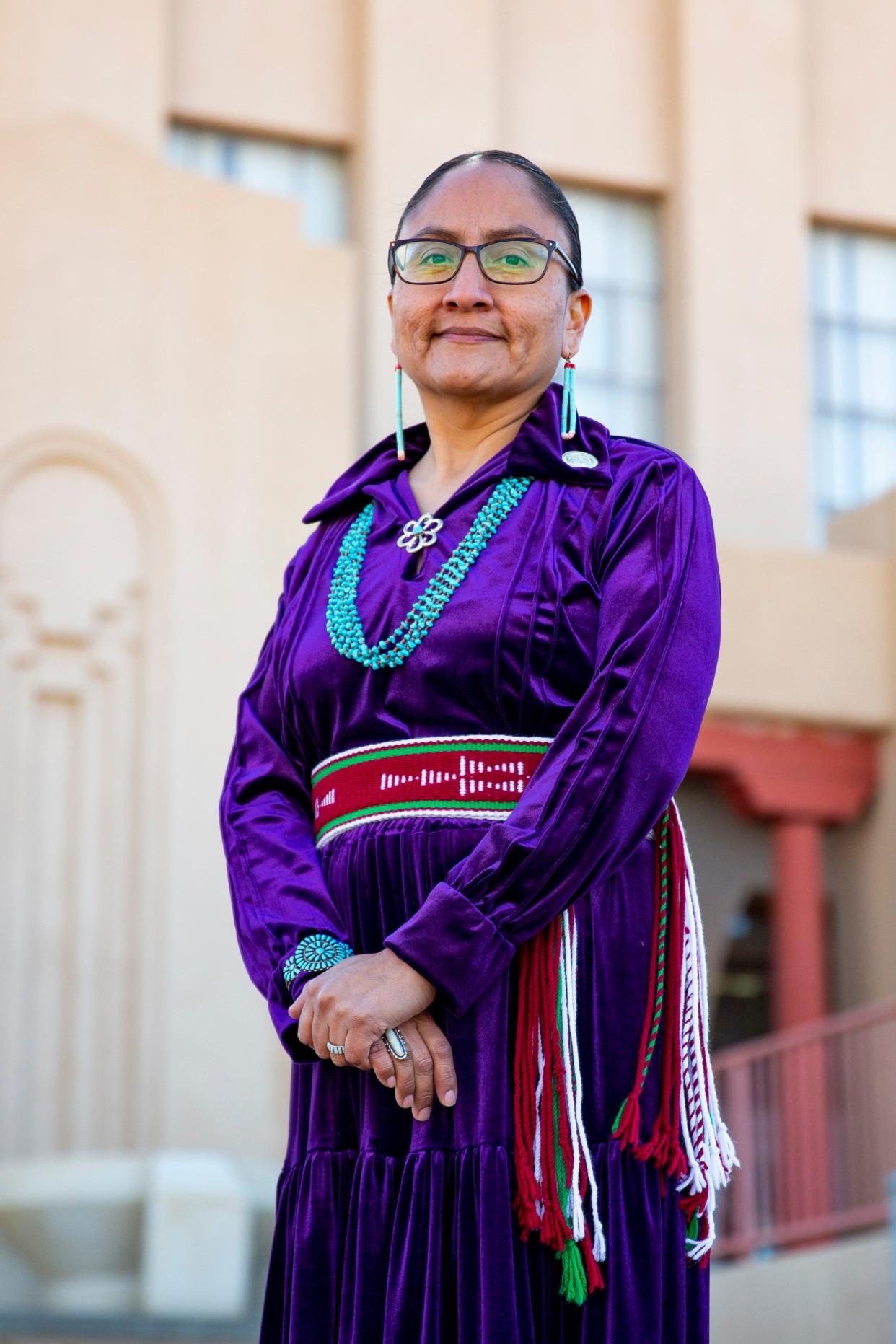
Wilhelmina Yazzie is one of USA TODAY’s Women of the Year, a recognition of women who have made a significant impact in their communities and across the country. The program launched in 2022 as a continuation of Women of the Century, which commemorated the 100th anniversary of women gaining the right to vote. Meet this year’s honorees at womenoftheyear.usatoday.com.
Wilhelmina Yazzie is a mother who saw her child struggling in school and took action. She had no idea her efforts would impact the entire state of New Mexico just a few years later.
Yazzie is one party to the Yazzie-Martinez lawsuit against the State of New Mexico – the lawsuit that found the State’s Public Education Department was gravely lacking in support for students who come from low-income families, who are Native American, English Language Learners and students with disabilities.
This landmark case originated in McKinley County in 2014 where the public school population consisted largely of Native American students from the nearby Navajo Nation, Hopi and Zuni tribes. The case wound its way through the court system, joining with a similar case filed in Santa Fe County. All the while, Yazzie was pushing for equitable opportunities for her son, Xavier Nez. For her work, she has been named USA TODAY's Women of the Year honoree from New Mexico.
This conversation has been edited for length and clarity.
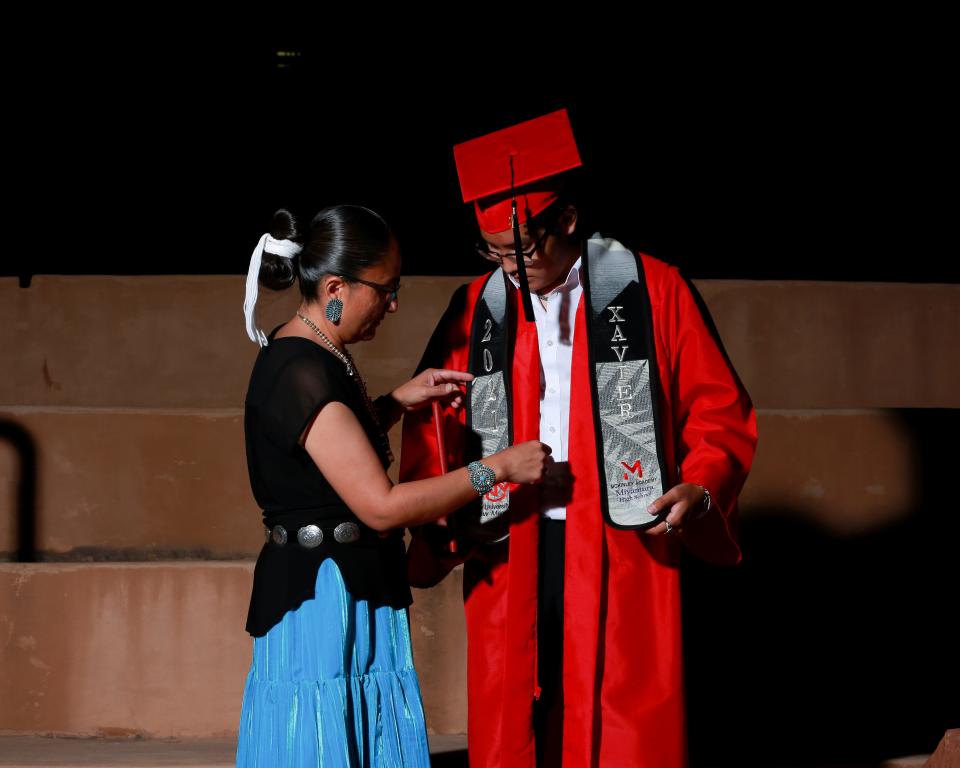
How do you feel about the role of women today, especially in taking on these leadership roles in state or government or local communities?
That is really needed, is to have female leaders. Like I said, within our Diné ways, we're a matrilineal society and traditionally, the cultural way of my teaching is that even though I'm a female, half of me is still male, and I am female on one side. So, in order for things to work out, we need a male and a female. And of course, that's the same way because that's how a child is made, right? So, in leadership roles, I feel like if there's a male and a female, everything is equal. And that's the teaching ... I had growing up.
I really feel that this is a new era to have those changes because in the past, I feel like women were never heard. We were not heard … it was just more of a “your place is at home, your place is for you to cook, to clean, to take care of the children” kind of thing. But that's not the history of our creation story. We pray to Changing Woman, White Shell Woman who had the twins that fought against the monsters, that creation story. So we hold that significance of our holy deities (who are) female.
That's how I feel that it's important that females also have these leadership roles. Even though me as a mother, even with the school (lawsuit), there's times where I was told “you're a leader now,” and “you have this role.” And I just go back and think of my upbringing and just how the values that I was taught is what I think keeps me grounded, and to remind me.
Do you think it’s getting easier for women to step into these roles and have these roles available to them?
It's inspiring and motivating to see ourselves in those positions, but it's not going to be easy. And that's where I feel like we're going to have to work twice as hard to be heard and to be seen, until we start to turn this curriculum for our children to learn from early age that men and women are equal. And … even not just with men and women, but different races – that we're all equal, no matter where we come from who we are…. I feel like it's not going to be easy, but it's good that they see themselves.
Especially with Deb Haaland as well, as … Secretary of the Interior. Gosh, she's inspired me way more, even with the school suit. At the beginning I was kind of like, I don't know, like, kind of doubting myself, but when I saw her get sworn in and she was so proud wearing her traditional attire and her family being there and just, yeah, we can be in that position, those roles. We can be leaders. Along with the (female) vice president with our Navajo Nation. With our Navajo Nation Council, there’s nine women now out of 21. Before, I think there was only two or three.
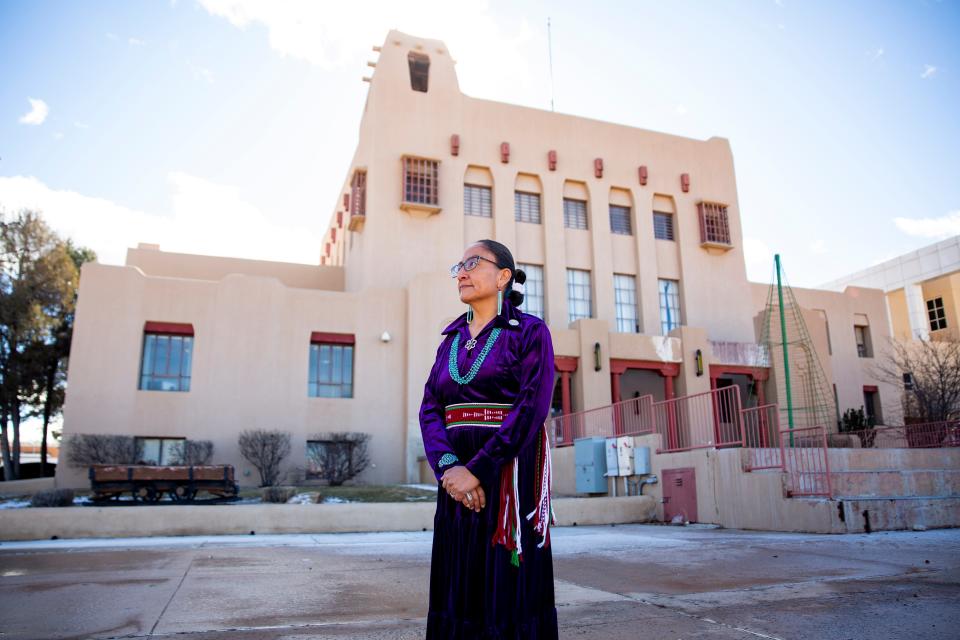
How do you feel about being one of USA TODAY’s Women of the Year?
I was thinking, “gosh, this is my mom,” like, my mom is the woman of the year, not me. This is my mom's legacy – everything that I do and remember, and who she was and who she stood for, is all because of her. So, it's just, I'm still trying to take it in.
Again, I feel that it's very important for women to fill these roles as well to represent. For me, representing our children and that's very important. It's just, I always think back because growing up in a small rural community and going to school with all these adversities, going through all this, graduating, going on to college, working as hard … just to be in this space and to have these interviews and to go to these events, it's so humbling, because I never seen myself in these spaces. And it was because of the way I think our history is, of what we're taught … what places women should be, but like I said, that's all changing now.
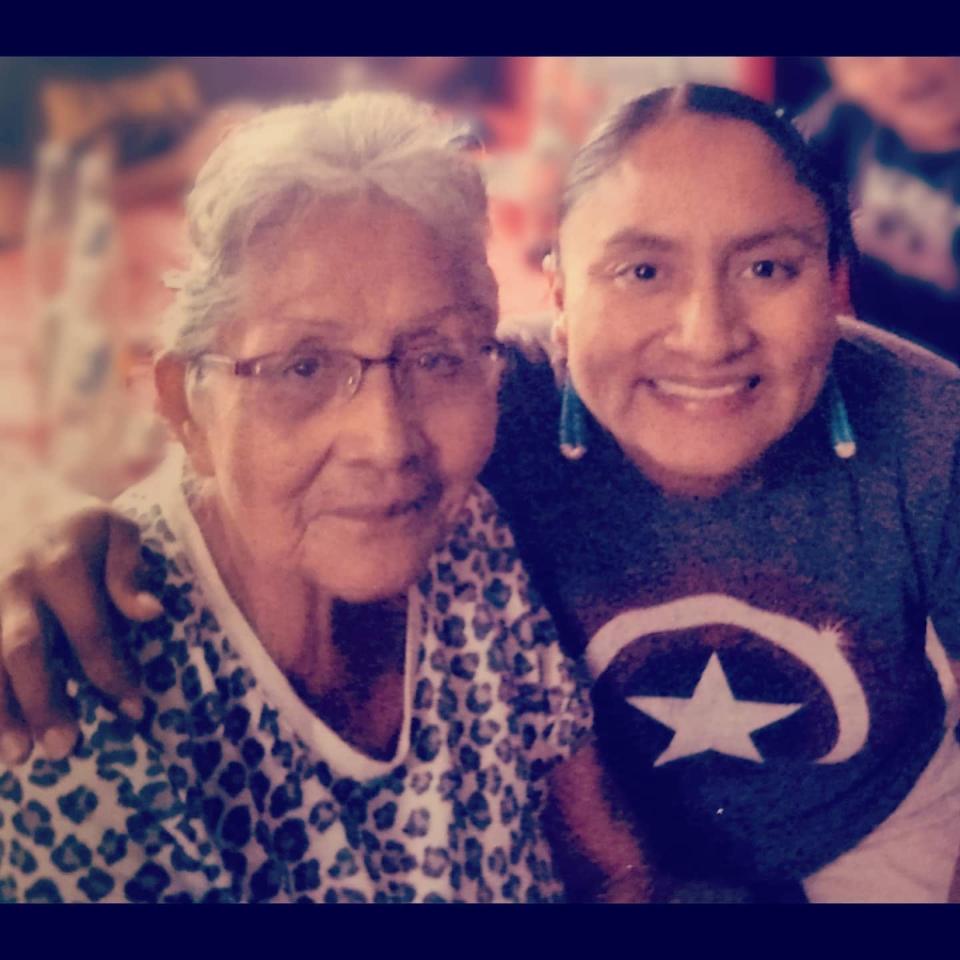
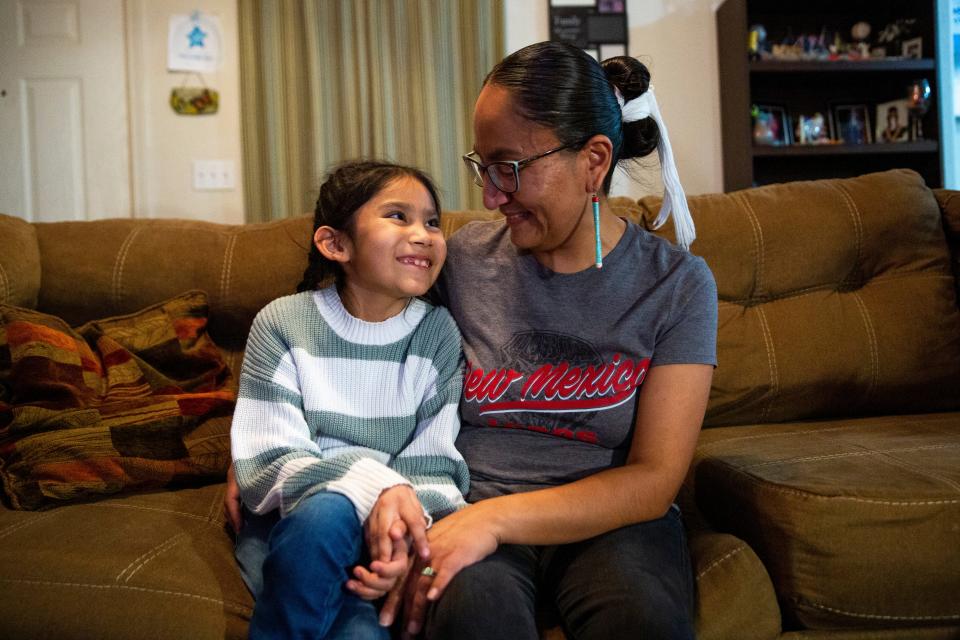
It's just me, it's just Wilhelmina, you know … I had said that to my friend one time, a close friend of mine. She said, “No, you're not just Wilhelmina now, no you're not. You got to know who you are and you got to be proud and accept that. You're not just Wilhelmina that grew up on the rez, had a hard time… Don’t think of yourself that way now. Be proud.” And she reminded me … “Mom is proud of you. You got to realize that and quit thinking of yourself as just that Wil, now you’re different. You’re Wilhelmina and you’re in this setting now.”
I hope I do the best that I can to continue what I do, advocating for our children, the best way that I can and know how. You know, I'm not a Ph.D. person or I don't have all kinds of licenses or, you know. No, I'm doing this from what I know as my role as a mother, and what I was taught.

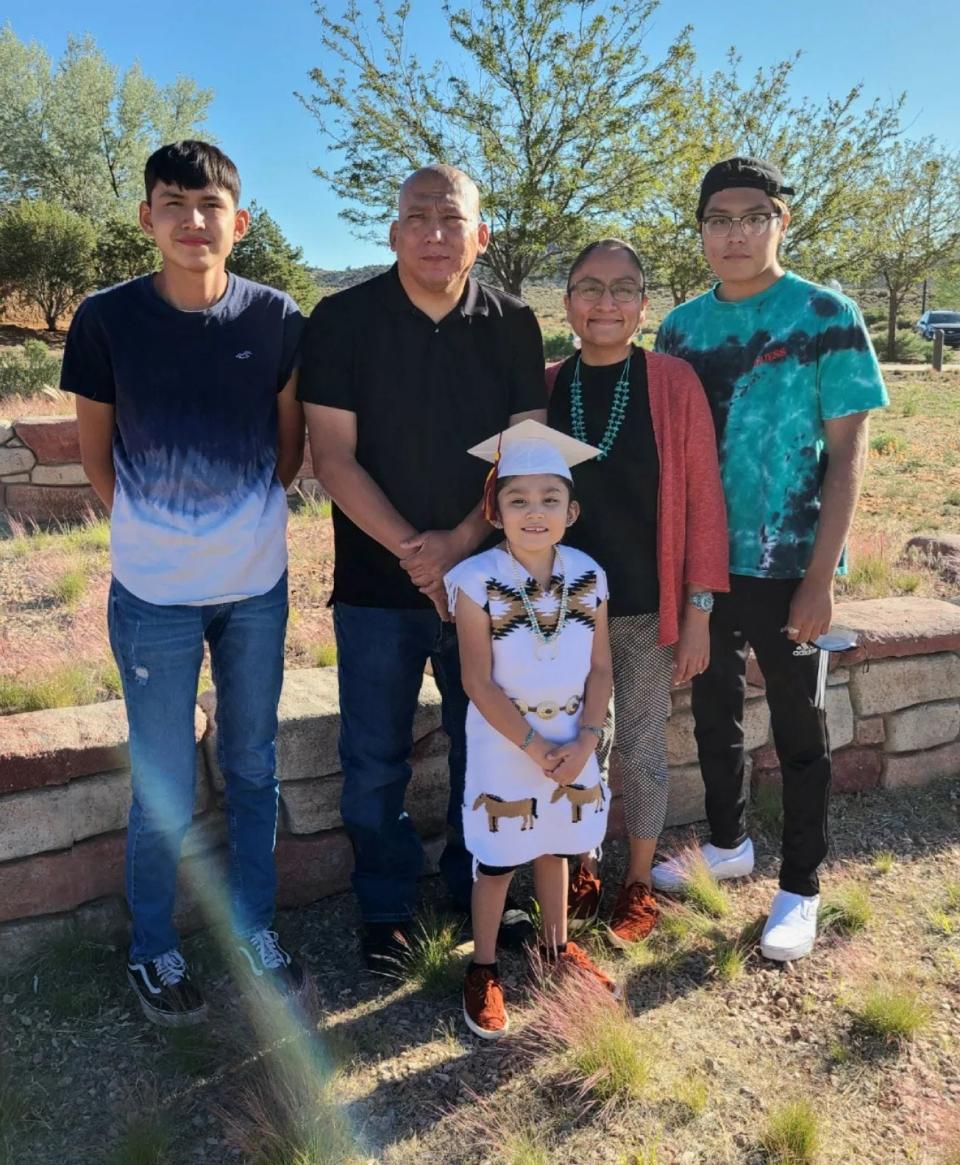
Who do you lean on?
Unfortunately, my mom’s passed on. But from our teaching, everything, we know that she's still around and she's still teaching us. She's still there for us. Now who I lean on the most is my siblings. All three of them. We’re there for each other all the time, we make sure that we're doing OK.
I feel like if it wasn’t for our mother’s teaching and how she raised us, we wouldn't be the way we are now. Because of her, we're still together.
2022 Women of the Year: New Mexico’s Karen Trujillo, leader in education, one of USA TODAY’s Women of the Year honorees
Women of the Century: Governor Michelle Lujan Grisham and golfer Nancy Lopez among inspiring New Mexico women
This article originally appeared on Carlsbad Current-Argus: Yazzie, Martinez lawsuit plaintiff honored by USA TODAY for activism

